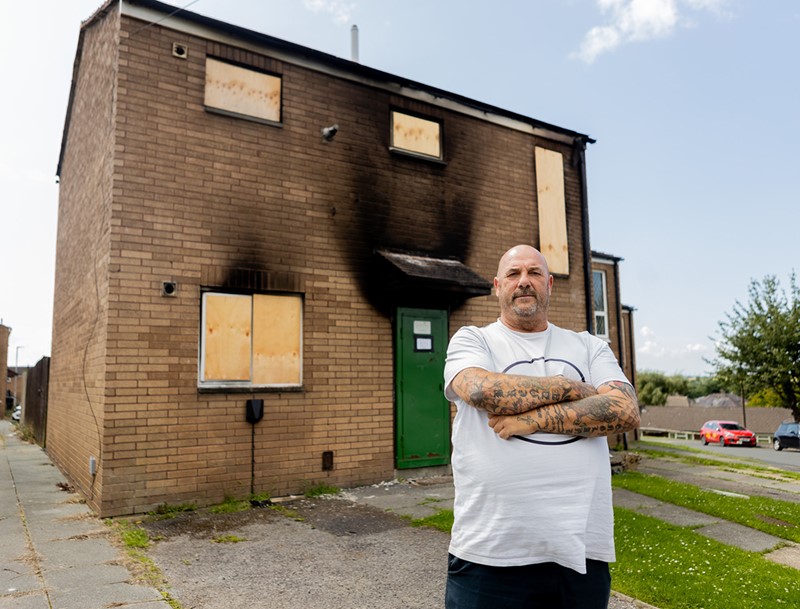Due to the risk of fires, batteries for e-bikes and e-scooters should receive third-party approval before being placed on the UK market, a charity has said.
Batteries for e-bikes and e-scooters should be regulated like fireworks and heavy machinery to better ensure their safety, according to the Electrical Safety First (ESF) Battery Breakdown report.
Currently, e-bikes and e-scooter manufacturers can self-declare whether their products meet safety standards. However, the charity argues that the batteries should be reviewed by a third party before being placed in the UK market due to the risk of fires they pose.
The recommendation is similar to the requirements made for specific products such as pyrotechnics, heavy machinery and medical devices. It also resembles the requirements introduced in New York City in March 2023 following a spate of fatal fires.
The report also follows rising international concern over the risk of fires posed by lithium-ion batteries. The London Fire Brigade has stated it has been called to an e-bike or e-scooter fire every two days on average. In June, a woman and two children died in a fire, which the Cambridgeshire Fire and Rescue Service linked to an e-bike that was charging overnight.
A fully charged e-bike battery can release a similar amount of stored energy as the amount of TNT (an explosive) contained in six hand grenades, the charity estimates, posing a significant safety risk.
One of the people affected by e-bike fires is Andrew Beaton, from Lancaster, whose son’s bike went up in smoke while it was charging underneath their staircase.
“If it wasn’t for my son, we wouldn’t be here,” he told EFS. “He was up to get a drink at night and shouted to us after seeing the e-bike on fire. I sprinted downstairs, swung open the front door and threw the bike outside. In that moment, all the batteries fell out and were exploding like hand grenades.”
“I was fearing for my wife and kids, as the bike was charging under the stairs and had set them alight. I started frantically throwing water on the stairs so they could get down. Within four minutes everything was gone.”

Andrew Beaton’s son’s e-bike caught on fire while charging / Electrical Safety First.
Image credit: Electrical Safety First.
In this context, ESF hopes stricter safety requirements would help save people’s homes and lives.
“The huge amount of energy that is released over time when a battery bursts into flames is unlike other fires – in a matter of minutes a room can be decimated,” said Lesley Rudd, chief executive of ESF. “This unique type of fire requires special measures to tackle the increasing problem.
“The UK should give serious consideration to following in the footsteps of New York City and better regulating lithium-ion batteries. We need to get on top of this issue now to prevent more lives being lost. There are too many reckless operators in this space, such as third-party sellers on online marketplaces, who are risking the lives of the public and giving responsible manufacturers of these products a bad name.”
The ESF report also looks at the design flaws of many e-scooters, and suggests ways to enhance their safety over time to better protect the battery from damage. These include larger wheels to lessen the impact from kerbs and potholes, as well as an increased footplate height of 150mm to minimise impact damage.
In addition, the charity proposed the banning of universal chargers, the introduction of a British Standard for conversion kits for e-bikes, and the launch of a government-backed nationwide campaign on e-bike and e-scooter safety, including safe charging.
The Bicycle Association (BA) of Great Britain, the trade association representing the UK cycle industry, said it would “fully support” such regulation.
“The BA particularly welcomes the comments around regulation of online marketplaces, which have been identified by fire services as the route by which many problematic products are sourced,” it said.
A government spokesperson said: “The Office for Product and Safety and Standards is working closely with the fire brigade to ensure product safety issues are properly assessed and action is taken to protect consumers.
“If manufacturers don’t comply with product safety regulations, appropriate enforcement action will be taken, such as ordering the removal of the product from the market.”
The National Fire Chiefs Council (NFCC) recommends that people do not charge their device’s battery while they are sleeping. It reminds users to unplug the charger once it has finished charging, to not cover the battery while charging, to plug the cable into a main socket rather than an extension lead and to always use the manufacturer-approved charger for the product.
In July 2022, a huge fire in a London high-rise prompted firefighters to issue an urgent warning about the risk of fires involving the lithium batteries of converted e-bikes. Last year, there were more than 100 fires in the capital involving lithium-ion batteries, the fire brigade said.
Lithium-ion batteries are also responsible for around 48 per cent of all waste fires – around 700 a year – occurring in the UK each year. This costs waste operators, fire services and the environment approximately £158m annually, according to research published by Eunomia.
Sign up to the E&T News e-mail to get great stories like this delivered to your inbox every day.


